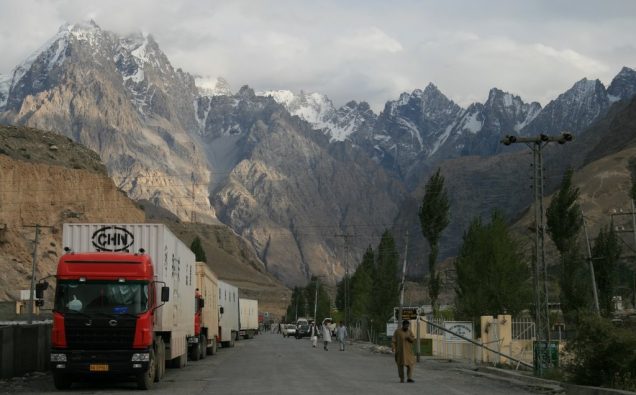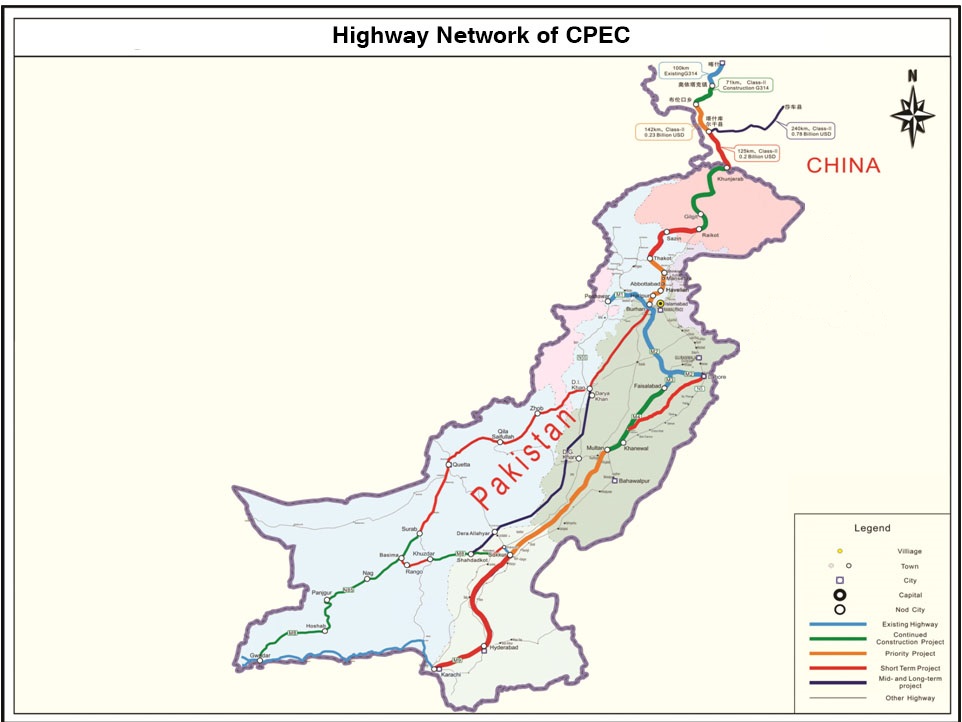
The U.S. and China – which are locked in a trade war – this week engaged in a war of words over the impact of China Pakistan Economic Corridor on Pakistani economy.
Alice Wells, the State Department’s Principal Deputy Assistant Secretary of State for South and Central Asia, argued in Washington that the CPEC would further add to Pakistan’s debt burden.
She noted at Woodrow Wilson Center that Islamabad has been further burdened with an estimated $15 billion in debt to the Chinese government and another $6.7 billion in Chinese commercial debt.
“Because it’s clear, or it needs to be clear, that CPEC is not about aid. This is almost always the form of loans or other forms of financing, often non-concessional, with sovereign guarantees, or guaranteed profits for Chinese state-owned enterprises that are repatriated to China,” Wells pointed out about the corridor, which is part of Beijing’s Belt and Road Initiative.
“Now together with non-CPEC Chinese debt payments, China’s going to take a growing toll on the Pakistan economy, especially when the bulk of payments start to come due in the next four to six years. Even if loan payments are deferred, they’re going to hang over Pakistan’s economic development potential, hamstringing Prime Minister (Imran) Khan’s reform agenda.”
The U.S. diplomat also took issue with the level of transparency, claiming that the “lack of transparency can increase CPEC costs and foster corruption resulting in an even heavier debt burden for Pakistan.”
Wells also pointed to the CPEC relies primarily on Chinese workers and supplies even amid rising unemployment in Pakistan. “CPEC is even bringing in Chinese workers who earn money in Pakistan, take the wages back to China, leaving very little in the local economy,” she said.

A map of CPEC Image: Government of Paksitan/Wikimedia
Reacting to U.S. criticism, Chinese Ambassador in Islamabad, Yao Jing rejected Wells’ statement, vowing that Beijing would never force Islamabad to make timely payments of its debt, unlike the International Monetary Fund (IMF).
“If Pakistan is in need, China would never ask it to repay its loans in time,” while on the other hand the International Monetary Fund, mainly governed by the West, is strict in its repayment system,” said Jing.
He posed a question to Washington as to where was it in 2013 when Pakistan faced a shortfall of energy, and why it did not invest in Pakistan’s power sector despite knowing the country’s dire need for electricity.
Jing reminded that it were the Chinese companies that established power plants in Pakistan to meet the country’s needs.
The Chinese ambassador said that Pak-China relations are based on “win-win cooperation and are mutually beneficial”.
Pakistan, which for years has close ties with both major powers, entered into the fray with a fine-tuned response.
“She said that CPEC is not an aid but an investment and this is correct. There is a small grant element contained within it but fundamentally it is an investment. Pakistan has always recognised that this is not aid and especially this government has always maintained that it wishes to move past the initial scope of the arrangement,” Asad Umar, Minister for Planning and Development remarked in the port city of Karachi.
“The aid that Pakistan received in the past did not really contribute in real terms towards the country’s progress and she was right to point out that we must stand on our own two feet,” the minister added.
Umar, however, rejected the notion that China was the sole beneficiary of the arrangement.
“We have said this on many occasions in the past […] that both countries have benefitted [from CPEC]. Chinese firms got business as their machinery was exported and came to Pakistan. The lack of infrastructure in Pakistan, especially in the power sector, was where a lot of the country’s needs were met. Besides that, CPEC became a source of financing in large amounts which was previously unavailable for Pakistan. So a base for infrastructure was laid out in the first phase and now further developments will take place in the next phase,” explained the minister.
But it is the public spat over impact of CPEC between the U.S. and China that has received the attention.
Pakistan may be in for a longtem interest of the two influential countries in the years to come as the U.S. and China compete for influence in the region and the world.


















